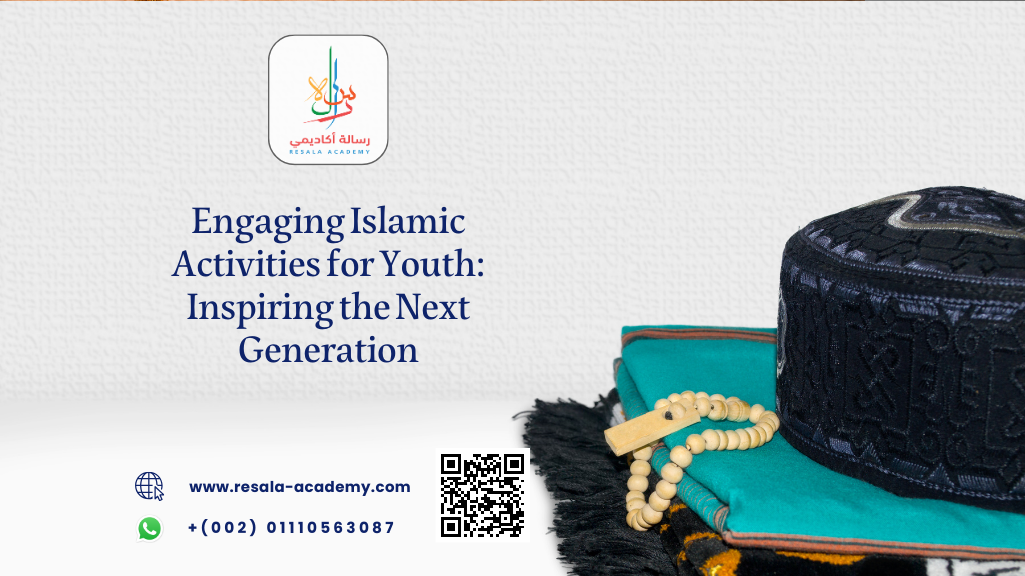Table of Contents
7 Proven Strategies to Learn Tajweed and Beautify Your Quranic Reading
Reading the Quran with Tajweed is a skill that requires consistency and dedication. Yet, it should not be an overwhelming task; rather, it should be something that you look forward to and enjoy. Learning how to read with Tajweed can take time, but with the right strategies, you can learn how to recite in a way that brings beauty and clarity to your recitation. This blog post’ll discuss seven proven strategies to help you learn Tajweed and beautify your Quranic reading.
The importance of Tajweed in Quranic recitation
When it comes to Quranic recitation, Tajweed holds a special place of importance. It is the art of beautifying and perfecting the pronunciation and intonation of each Arabic letter. By learning Tajweed, you unlock the true beauty and essence of the words revealed by Allah. It allows you to connect on a deeper level with the verses, understanding their meanings more profoundly.
Tajweed ensures that every word is enunciated correctly, bringing out its intended rhythm and melody. The precise application of Tajweed rules gives your recitation a harmonious flow that captivates your heart and those who listen to you. With Tajweed, you can experience the sheer power and spiritual impact that Quranic recitation can have on your soul.
The benefits of learning Tajweed for a more meaningful reading experience
Learning Tajweed is not just about perfecting our recitation of the Quran, it goes beyond that. It allows us to connect deeply with the words of Allah and experience a more meaningful reading journey. By learning Tajweed, we unlock the beauty and intricacy of the Quranic verses, enhancing our understanding and appreciation of their profound meanings.
One of the key benefits of mastering Tajweed is that it enables us to recite the Quran with utmost clarity and precision. We learn how to pronounce each letter correctly, giving life to every word we utter. This attention to detail brings a new level of reverence for the divine scripture, as we become aware of its delicate nuances and poetic rhythm.
Moreover, by adhering to Tajweed rules such as elongation (madd) and proper pausing (waqf), we can convey the intended emotions behind each verse – whether it’s joy, sorrow, or awe – making our recitation truly heartfelt. So let’s embark on this journey towards perfection in Tajweed and elevate our spiritual connection with Allah through His magnificent words!
1. Understand the Basics of Tajweed:
Tajweed, the art of Quranic recitation, is an essential skill that every Muslim should strive to master. It brings beauty and precision to our reading, allowing us to connect deeply with the words of Allah. But where do we begin? Understanding the basics of Tajweed is crucial.
At its core, Tajweed means “to improve” or “make better.” It involves following a set of rules and principles for proper pronunciation, elongation, and pausing while reciting the Quran. Mastering these fundamentals can elevate our recitation from mere reading to a soul-stirring experience. So let’s embark on this journey together and delve into the world of Tajweed!
The definition and significance of Tajweed
Tajweed, the art of beautifying Quranic recitation, goes beyond simply reading the words on a page. It is an intricate system of rules and principles that govern proper pronunciation, elongation, and pausing. Understanding the definition of Tajweed is crucial for anyone seeking to truly connect with the divine message.
The significance of Tajweed lies in its ability to enhance our understanding and appreciation of the Quran. By adhering to its rules, we ensure that each word is uttered with precision and clarity, allowing us to fully grasp its intended meanings. The correct application of Tajweed transforms our recitation into a melodious symphony that captivates both our hearts and minds. So let’s dive deeper into this fascinating world of Tajweed!
The rules and principles of Tajweed, such as proper pronunciation, elongation, and pausing
When it comes to Tajweed, there’s a whole world of rules and principles waiting to be explored! These guidelines are like the secret keys that unlock the true beauty of Quranic recitation. One important aspect is proper pronunciation – by mastering the correct sounds and accents, you can bring each word to life in its full glory.
And let’s not forget about elongation – those stretched-out vowels add a touch of elegance and rhythm to your reading. Pausing at the right moments allows for reflection and emphasis, elevating your recitation to another level altogether.
Learning these rules may seem daunting at first, but fear not! With practice and dedication, you’ll soon become familiar with them like an old friend. So go ahead, dive into the world of Tajweed, and discover how these rules enhance your connection with Allah’s words.
2. Seek Knowledge from Qualified Teachers:
Learning Tajweed is a journey that requires guidance from qualified teachers. These knowledgeable individuals possess the expertise to help you understand and apply the principles of Tajweed effectively.
By seeking knowledge from qualified teachers, you can benefit from their structured approach to teaching Tajweed. They provide a supportive learning environment where you receive direct feedback on your recitation, allowing you to identify and correct any mistakes or shortcomings. Their experience and expertise ensure that you learn the rules and nuances of Tajweed accurately.
Remember, learning from qualified teachers not only helps improve your Quranic recitation but also deepens your understanding of the meaning behind the verses. So, seek out these valuable mentors who will guide you on this beautiful journey of mastering Tajweed!
The importance of learning Tajweed from knowledgeable and experienced teachers
Learning Tajweed from knowledgeable and experienced teachers is crucial to mastering the art of Quranic recitation. These experts possess a deep understanding and expertise in the rules and principles of Tajweed, ensuring accurate pronunciation, proper elongation, and appropriate pausing. Their guidance not only helps students avoid common mistakes but also allows for a more nuanced appreciation of the beauty and eloquence of the Quran.
By learning from qualified teachers, students benefit from a structured learning environment that provides personalized feedback. This direct interaction enables learners to receive immediate corrections on their recitation, helping them refine their skills effectively.
Moreover, teachers can offer valuable insights into the finer nuances of Tajweed, sharing their own experiences and practical tips to enhance students’ understanding and application of these rules. With expert guidance, individuals can develop a strong foundation in Tajweed that will elevate their Quranic reading experience to new heights.
The advantages of having a structured learning environment and receiving direct feedback
Having a structured learning environment and receiving direct feedback can greatly enhance your journey to learn Tajweed and beautify your Quranic reading. When you have access to knowledgeable teachers who can provide guidance and correction, you can progress more efficiently. They can offer personalized instruction tailored to your specific needs, helping you overcome any challenges or mistakes in your recitation.
Additionally, being part of a structured program allows for consistency and accountability. With regular classes or lessons, you establish a routine that keeps you on track with your learning goals. Moreover, the opportunity for direct feedback ensures that you are aware of any errors or areas where improvement is needed.
This immediate input empowers you to make necessary adjustments and fine-tune your Tajweed skills effectively. So embrace the advantages of a structured learning environment as it will propel your journey towards mastering Tajweed!
3. Practice Regularly:
Practice makes perfect! And when it comes to learning Tajweed, regular practice is key. Set aside dedicated time each day to recite the Quran and focus on applying the rules of Tajweed. Whether it’s in the morning or before bed, find a time that works best for you and make it a habit.
To stay consistent, establish a routine that suits your schedule. Start with shorter sessions and gradually increase the duration as you progress. Remember, even just a few minutes of daily practice can yield significant results over time.
In addition to traditional methods of recitation, leverage technology-based learning tools or apps to enhance your practice. These resources offer interactive exercises, audio recordings by expert reciters, and feedback features that allow you to assess your progress. So make use of these technological advancements to ensure you’re consistently honing your Tajweed skills!
Remember: Practice may not always make perfect immediately but rest assured that with dedication and perseverance, you’ll steadily improve your Quranic reading through regular practice!
The need for consistent practice to improve Tajweed skills
Consistent practice is the key to unlocking the true beauty of Tajweed. Like any skill, mastering Tajweed requires dedication and regularity. It’s not enough to simply learn the rules; you must apply them consistently in your recitation.
Make it a habit to recite the Quran daily, even if it’s just for a few minutes. Set aside a specific time each day for this sacred practice. Whether it’s early mornings or before bedtime, find a routine that works best for you.
Additionally, leverage technology-based learning tools or apps that provide guided exercises and feedback on your pronunciation and application of Tajweed rules. This way, you can continue practicing even when you’re on the go or unable to attend formal classes.
Remember, Rome wasn’t built in a day! Improving your Tajweed skills takes time and effort. Stay committed, be patient with yourself as you progress, and soon enough you’ll witness the transformation in your Quranic reading that consistent practice brings about!
Tips on establishing a daily Quran recitation routine
1. Set a realistic goal – Decide how much of the Quran you’d like to read each day, and make sure it’s something you can stick to.
2. Set aside time – Determine when during the day you will read and make sure that it is a consistent time each day.
3. Make it a priority – Schedule your Quran recitation ahead of other activities and treat it as a non-negotiable part of your daily routine.
4. Develop an action plan – Break down your goal into manageable parts, such as reading a page or chapter at a time from the beginning to the end of the Quran over a certain period.
5. Have self-discipline – If you miss some days, don’t give up on yourself; simply pick up where you left off and continue with your journey!
6. Seek help – Ask friends and family to join you in reciting the Quran, or find an online community or class to help keep you motivated.
7. Reflect – Take the time to think about what you’ve read and how it applies to your life.
8. Find a reward system – Celebrate your accomplishments by rewarding yourself for completing sections of the Quran.
9. Make a plan – Keep a record of your progress and how much you have left to read. This will help you stay focused and motivated.
10. Pray – Before you start your recitation, take a few moments to pray for guidance and understanding.
Utilizing technology-based learning tools or apps for additional practice
In this digital age, learning Tajweed has become more accessible and convenient than ever before. Thanks to technology-based learning tools and apps, you can now enhance your Quranic recitation skills anytime, anywhere!
With just a few taps on your smartphone or tablet, you can explore a plethora of interactive apps designed specifically for Tajweed practice. These innovative tools provide exercises and lessons that focus on pronunciation, elongation, pausing, and other essential aspects of proper recitation.
Moreover, the incorporation of gamification elements in these apps adds an element of fun and engagement to your learning experience. By earning points or unlocking achievements as you progress through various levels or challenges, you’ll stay motivated and eager to continue honing your Tajweed skills.
So why not leverage the power of technology to take your Quranic reading to the next level? Embrace these user-friendly learning tools and apps as valuable companions on your journey toward mastering the art of Tajweed!
4. Focus on Pronunciation:
The correct pronunciation is a key aspect of Tajweed that can truly elevate your Quranic recitation. To master this skill, immerse yourself in the beautiful sounds of Arabic by listening to native speakers and focusing on individual letters and their unique sounds. Practice saying each letter with precision and clarity, paying attention to subtle nuances. Emulate the correct intonation and rhythm that brings life to the words of Allah. With regular practice, you’ll gradually refine your pronunciation skills and experience the joy of reciting the Quran with fluency.
In addition to practicing individual letters, try incorporating exercises that help improve overall pronunciation. Tongue twisters can be a fun way to challenge yourself while also enhancing coordination between your tongue, lips, and vocal cords. Remember, every effort counts towards perfecting your Tajweed skills. So keep honing your pronunciation abilities with dedication and passion for an even more fulfilling connection with the divine words of Allah!
The importance of correct Arabic pronunciation in Tajweed
Understanding the importance of correct Arabic pronunciation in Tajweed is like adding a touch of magic to your Quranic recitation. Each letter has its distinct sound, and mastering these sounds brings life and beauty to the words of Allah. Whether you are reciting individually or leading congregational prayers, pronouncing each letter accurately enhances your connection with the divine message.
Proper pronunciation in Tajweed ensures that you convey the intended meaning without any distortion. It helps maintain the integrity and authenticity of the Quran’s verses. When every letter is pronounced correctly, it creates a harmonious flow that captures both the ears and hearts of those who listen. So let us embark on this journey to master Arabic pronunciation and experience a deeper spiritual connection with our Creator through beautiful Tajweed!
Techniques and exercises to improve pronunciation
When it comes to Tajweed, pronunciation is key. You want to ensure that every letter and sound is pronounced correctly, allowing the words of the Quran to flow effortlessly from your lips. One effective technique for improving pronunciation is listening to native Arabic speakers. By immersing yourself in their natural speech patterns, you can absorb the correct intonation and rhythm of the language.
In addition to listening, practicing individual letters and sounds is crucial. Take time each day to focus on specific letters or combinations that may be challenging for you. Repeat them aloud, paying close attention to how your mouth forms each sound. This targeted practice will not only enhance your pronunciation but also deepen your understanding of the intricacies of Tajweed. So go ahead and let those beautiful Arabic sounds roll off your tongue!
5. Study the Rules of Tajweed:
Are you ready to dive deep into the fascinating world of Tajweed? It’s time to study the rules that will take your Quranic recitation to the next level! Tajweed is like a secret language, with its own set of guidelines and principles. By understanding these rules, you’ll be able to unlock the true beauty and power of the words in the Quran.
Let’s start by exploring some key rules of Tajweed. One important rule is “Ikhfa,” which teaches us how to merge certain letters seamlessly for smooth recitation. Another rule is “Idgham,” where we learn how to blend specific letters without any pause between them. These are just a couple of examples among many others that make up this intricate science.
To truly grasp these rules, it’s essential to practice them regularly. Take some time each day to study and apply what you’ve learned. Through repetition and consistency, these rules will become second nature as you internalize their intricacies. Remember, Rome wasn’t built in a day – mastery takes time!
Now that we have an understanding of some basic Tajweed rules let’s move on to the 7th step: Seek Feedback and Guidance. It’s important to get feedback and guidance from an experienced teacher to ensure that you are reciting correctly. Having someone who can listen to you and give you helpful tips is invaluable for improving your recitation.
So keep practicing and learning, and soon you’ll be a pro at Tajweed!
The various rules and guidelines of Tajweed, including rules for stopping, merging letters, and characteristics of specific letters
When it comes to learning Tajweed, understanding the various rules and guidelines is essential. These rules cover everything from proper stopping at the end of verses, merging letters smoothly, to recognizing the distinct characteristics of specific letters.
One important rule in Tajweed is knowing when to stop and pause while reciting the Quran. This helps to maintain the correct flow and rhythm of your reading. Another crucial aspect is learning how certain letters merge with others, particularly when one letter ends with a sound that merges seamlessly with another letter’s beginning sound. Recognizing the unique characteristics of specific Arabic letters, such as their points of articulation or pronunciation methods, allows you to improve your overall recitation skills.
By exploring these rules and guidelines in-depth, you will acquire a deeper understanding of Tajweed principles and enhance your ability to read the Quran beautifully. So keep delving into these intricacies as you embark on this journey toward mastering Tajweed!
Examples and practical exercises to help readers understand and apply these rules effectively
Learning the rules of Tajweed may seem daunting at first, but fear not! I’ve got some fantastic examples and practical exercises that will make it a breeze for you to understand and apply these rules effectively.
To start, let’s take the rule of elongation (Madd). Practice reciting verses with Madd by stretching the sound of specific letters like Alif, Waw, and Ya. For example, try reciting “Bismillah” with a prolonged “i” sound in Bismi-Allah. This exercise will help you grasp the concept of elongation and incorporate it into your reading smoothly.
Another important rule is Qalqalah or echoing. To practice this, focus on pronouncing certain letters with a slight bounce or echo effect. Try saying “Qalb” where you emphasize the letter ‘Qaf’ slightly by bouncing your voice off as if there is an echo present.
By applying these practical exercises and more, you’ll gradually master each Tajweed rule effortlessly. So keep practicing and watch as your Quranic reading becomes even more beautiful!
6. Recite with Tajweed in Everyday Life:
Now that you have learned the rules and principles of Tajweed, it’s time to incorporate them into your everyday recitation. Whether you are reading the Quran individually or during congregational prayers, practicing Tajweed will enhance your connection with the divine words.
As you recite, pay attention to proper pronunciation, elongation of vowels, and appropriate pausing. Let each word flow smoothly from your lips, allowing its beauty to resonate in your heart. Embrace the rhythm and melody of Tajweed as it brings life to every verse you utter. With consistent practice, soon enough, reciting with Tajweed will become second nature for you! So go ahead – let every moment be an opportunity to beautify your Quranic reading through this sacred art form.
7. Seek Feedback and Guidance:
Learning Tajweed is an ongoing journey, and seeking feedback and guidance from knowledgeable individuals or scholars can greatly enhance your skills. Don’t be afraid to reach out for assistance – after all, we’re all here to learn and grow together!
Joining Tajweed study circles or online forums can provide you with a community of like-minded individuals who share the same passion for Quranic recitation. You can exchange tips, ask questions, and receive valuable feedback from experienced tutors or fellow learners.
Remember, progress comes through continuous improvement, so embrace the opportunity to seek guidance to enhance your mastery of Tajweed.
Joining Tajweed study circles or online forums for further guidance and support
Joining Tajweed study circles or online forums can be a game-changer in your journey to master the art of Quranic recitation. These platforms provide a unique opportunity to connect with like-minded individuals who share the same passion for Tajweed. By joining these circles, you can engage in discussions, ask questions, and receive valuable feedback from experienced teachers and fellow learners.
The beauty of study circles is that they offer a supportive and nurturing environment where you can learn from other’s experiences and gain new insights into Tajweed. Whether it’s discussing complex rules or seeking clarification on specific verses, these forums act as a virtual gathering space for students of all levels.
With regular participation in study circles or online forums dedicated to Tajweed, you’ll not only enhance your understanding but also build meaningful connections within the Quranic recitation community. So why wait? Join now and embark on an enriching journey toward perfecting your Tajweed skills!
Learn Tajweed and Beautify Your Quranic Reading Online with Resala Academy
Are you looking to enhance your Quranic reading skills and beautify your recitation? Look no further than Resala Academy’s online Tajweed courses! With our expert instructors, structured learning environment, and convenient online platform, we offer a comprehensive program that will take your understanding of Tajweed to new heights.
At Resala Academy, we understand the importance of learning from qualified teachers who have in-depth knowledge and experience in Tajweed. Our instructors are passionate about teaching and will guide you through the intricacies of proper pronunciation, elongation, pausing, and other essential rules of Tajweed. You’ll receive personalized feedback that will help you improve your skills and develop a melodious recitation style.
With our flexible online courses, you can practice regularly at your own pace. We provide resources like audio recordings for individual letters and words to aid in improving pronunciation. Additionally, our user-friendly platform allows you to access lessons anytime from anywhere. Whether you’re a beginner or an advanced learner, our courses cater to all levels of proficiency.
Enroll today with Resala Academy’s online Tajweed courses and embark on a journey toward mastering the art of Quranic recitation. Experience the joy of reading the Quran with precision and beauty as every word flows gracefully off your tongue. Start now because there is no better time than the present to learn Tajweed!
FAQs
1. Is it necessary to learn Tajweed to read the Quran?
Absolutely! Learning Tajweed is crucial for a meaningful and correct recitation of the Quran. It enhances your understanding of the Arabic language, ensures proper pronunciation, and allows you to connect deeply with the divine message. By mastering Tajweed, you can experience a more profound spiritual connection while reciting the sacred words of Allah.
2. Can I learn Tajweed online?
Yes, definitely! Online platforms like Resala Academy offer comprehensive courses on Tajweed taught by qualified teachers who provide personalized guidance and feedback. You can access these classes from anywhere at your convenience, making it easier than ever before to embark on this beautiful journey of learning Tajweed. Start your online learning today and unlock the secrets of perfecting your Quranic recitation!
3. What is the importance of Tajweed?
Tajweed is a set of rules and regulations that are designed to help Muslims recite the Quran accurately and correctly. It helps us understand and appreciate the beauty of the language in which Allah has revealed His words, thus allowing us to gain deeper insight into its message. It also ensures that we receive all the blessings associated with reciting the Quran, as it encourages us to take our time and read each ayah (verse) with reverence and respect.
Conclusion
Learning Tajweed is a journey that can truly transform your Quranic reading experience. By understanding the basics of Tajweed, seeking knowledge from qualified teachers, practicing regularly, focusing on pronunciation, studying the rules of Tajweed, reciting with Tajweed in everyday life, and seeking feedback and guidance, you can master this beautiful art form.
Tajweed not only enhances your recitation skills but also deepens your connection with the words of Allah. It allows you to appreciate the subtle nuances in every verse and understand their intended meanings. Whether you are reciting individually or leading congregational prayers, incorporating Tajweed into your daily routine will bring a sense of tranquility and reverence to your worship.
If you’re ready to embark on this transformative journey but unsure where to start or how to proceed effectively, consider joining Resala Academy’s online course on learning Tajweed. With experienced instructors and interactive lessons tailored for all levels of learners, Resala Academy provides an excellent platform for individuals seeking comprehensive guidance in mastering the art of Tajweed.
Remember that Rome wasn’t built in a day; it takes time and dedication to develop proficiency in Tajweed. However, with consistency and perseverance along with these proven strategies outlined in this article as your roadmap, you will steadily progress towards becoming a skilled reciter who beautifully adorns your Quranic reading with the principles of Tajweed.
So don’t delay any further! Start implementing these strategies today and discover firsthand how learning Tajweed can elevate your Quranic reading from mere words on paper to a deeply meaningful spiritual journey filled with beauty and divine blessings.




